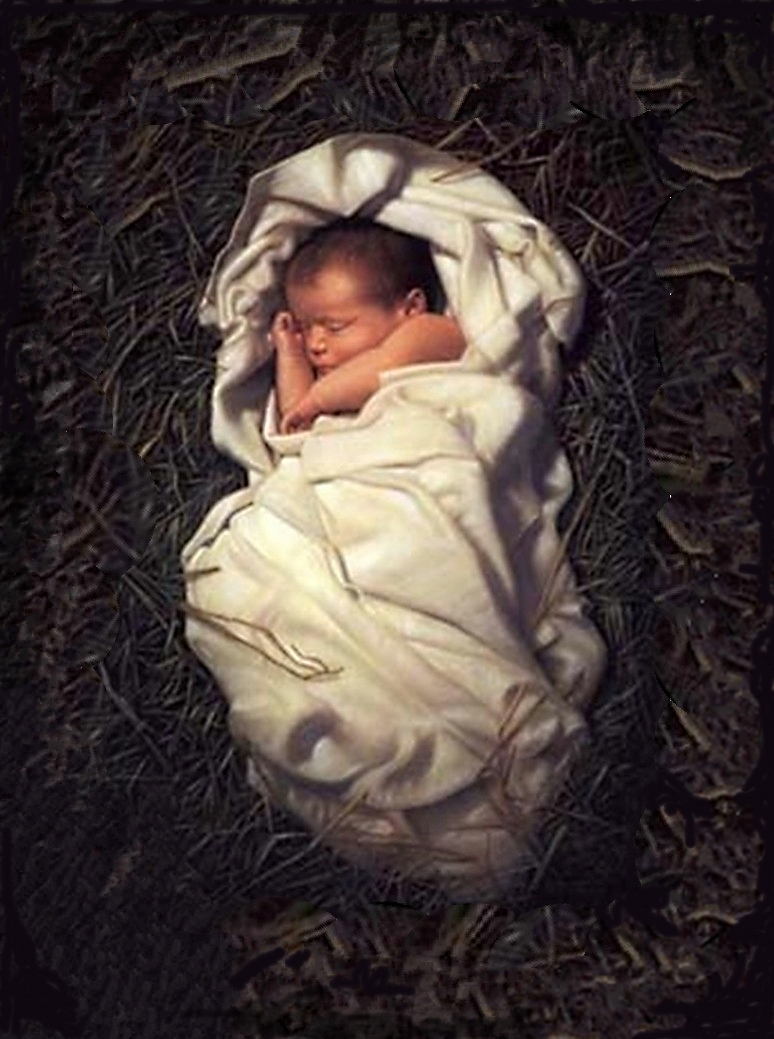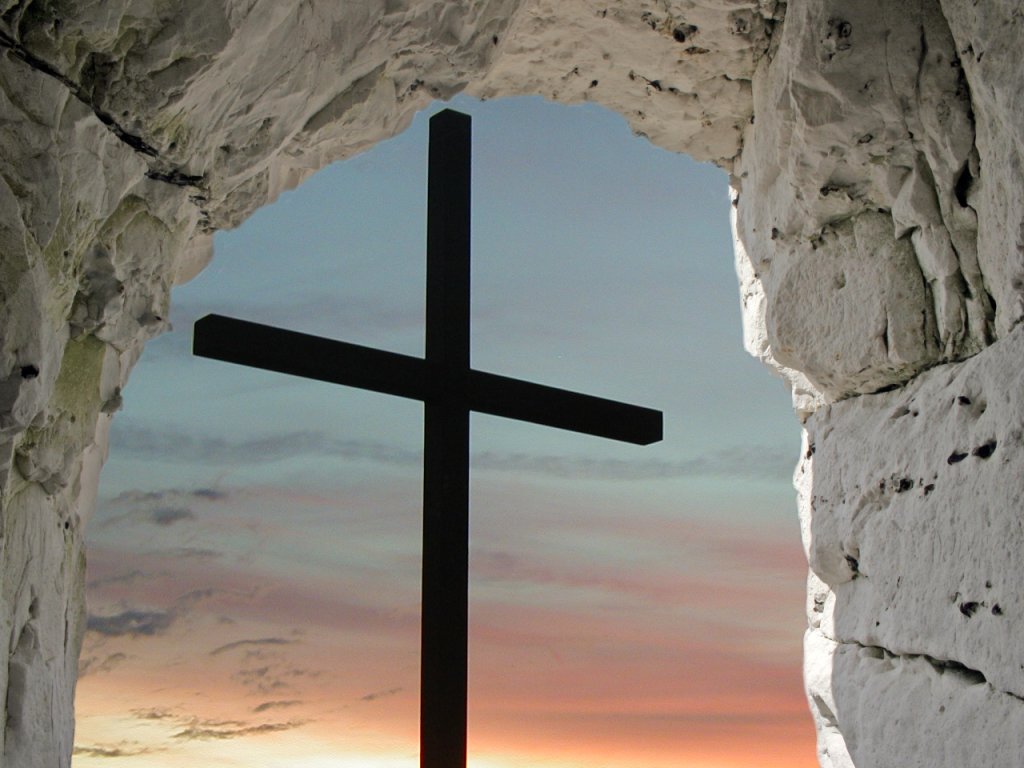 Incarnation
Incarnation Entries in Incarnation (9)
How Did He Become The Man He Was? (Part Two)
 Thursday, July 30, 2015 at 06:00AM
Thursday, July 30, 2015 at 06:00AM  (NOTE: This post is part two of an article begun Monday. You can read it here.)
(NOTE: This post is part two of an article begun Monday. You can read it here.)
How did Jesus become the man he was? As the record of his life unfolds in the gospels we are faced with an unspoken question: how did Jesus do the things he did? If we choose to say simply, “he was the Messiah, God come to earth,” how can we explain his statement in John 14:12? “I tell you the truth, anyone who has faith in me will do what I have been doing. He will do even greater things than these, because I am going to the Father.”
His earliest followers understood that Jesus lived a life that demonstrated full reliance on the Holy Spirit: a life in perfect submission to the Father’s will. True, he was without sin and in his perfection Jesus‘ sacrificial death paid the price for our pardon. But his life was more than a substitution, more than payment for our sin--as great as that sacrifice is. His life was a model for anyone who would follow him, a model of both moral excellence and ministry in the power of the Holy Spirit.
But how can his life be a model for anyone if his character and power cannot be imitated? Whether we articulate the question or not, each of us is forced to wrestle with the nature of Jesus--was he God or was he man? If he was only a man, how can his death pay the price for all mankind? If he is God, how can he reasonably expect his followers to live up to his example? It's an important wrestling match because our answer may well determine our own progress as a follower of Jesus.
Jesus clearly expected his followers to do the same kind of works he did. The instructions to the twelve in Luke 9:2 are clear, “he sent them out to preach the kingdom of God and to heal the sick.” Just one chapter later he widened the commission to at least 70 of his followers. In short order they returned joyfully, "Lord, even the demons submit to us in your name." (Luke 10:17) Even as Jesus was pleased with their works he reminded them of their own need for redemption, and then--filled with Holy Spirit-inspired joy, made a most startling statement: "I praise you, Father, Lord of heaven and earth, because you have hidden these things from the wise and learned, and revealed them to little children. Yes, Father, for this was your good pleasure.”
The “wise and learned” debated the nature of Jesus the man and Jesus the Son of God for nearly 400 years. Finally, in 431AD at the first Council of Ephesus the church settled on this formulation: Jesus was one person, not two separate people: completely God and completely man, all wrapped up into one person.
Both aspects of his nature are important for everyday living. Only God’s own Son can purchase the redemption of all humanity--no human sacrifice will do. Our forgiveness rests completely in the sufficiency of God’s own sacrifice. We need to approach him as the only one capable of dispensing divine mercy and grace. At the same time, Jesus is the example of a human life lived in full accordance with the Father’s will. We must see (as was pointed out in Part One) that his miracles were accomplished through the power of the Holy Spirit, not by virtue of some divine standing as the Son of God. When Jesus operated under the power of the Holy Spirit, he was showing us how it was done. That is, he was calling us to be like him in every way.
Simple passages like Luke 2:52 point to the fact that Jesus lived a very human life. Other, more enigmatic verses like Hebrews 5:8 seem to point to the fact that Jesus modeled obedience--an obedience he had won by suffering the same difficulties we face. Perhaps most challenging of all, verses like Matthew 10: 7-8 seem to indicate that he had higher expectations for his followers than we have today.
Throughout the 20th century, skeptics and scholars alike attacked the divinity of Jesus. In the academy Jesus’ identity was deconstructed and the gospel record was regarded with suspicion. The miracle accounts were explained away. We were asked to accept the idea that the miracles were not true in any concrete sense, but mythical illustrations of spiritual points.
The Evangelical church responded with a vigorous defense of the gospel record and of the truth regarding the divinity of our Lord. The world at large denied the divinity of Jesus in the 20th century, and the church held fast to the truth--Jesus is God come to earth. However, as we rose to his defense we fell prey to a subtle over-emphasis. The church stood firmly on the divinity of Jesus at the expense of asserting his humanity as well. While maintaining the miracle accounts in the gospels were true indeed, we lost sight of his teaching that his followers would do his works.
Some 21st century Christians vigorously defend the miracles of Jesus' day without recognizing his call to do the very same works in our day. Some 21st century Christians vigorously defend the holy and blameless life of Jesus twenty centuries ago without sharing the good news that, by the grace of God, we can live lives of substantial holiness today (see, for example Eph. 5:27 or I Thess 3:13).
To ignore the humanity of Jesus is to ignore his call to be like him in every respect. To over-emphasize his divinity is to give us an excuse to live powerless lives: lives powerless over sin or powerless over the sicknesses and the demonization so prevalent in our world today.
How did he become the man he was? The simple answer is he lived in the presence and the power of the Holy Spirit. The more difficult answer is that he calls us to live the same way.
Why not receive Students of Jesus in your inbox? Subscribe to our email newsletter and never miss a post.
Meditation: Why the Cross is Not Enough
 Monday, May 6, 2013 at 11:55AM
Monday, May 6, 2013 at 11:55AM  Christianity without the cross is a sham, but the cross is not enough. You heard me: the cross is not enough. Before the cross came incarnation, and after the cross came resurrection: Jesus modeled all three, and so should we.
Christianity without the cross is a sham, but the cross is not enough. You heard me: the cross is not enough. Before the cross came incarnation, and after the cross came resurrection: Jesus modeled all three, and so should we.
I’ve watched recently as an increasing number of teachers and leaders encourage us to follow Jesus’ example by going to the cross. Our Lord is a model—the model, actually—of self sacrifice and humility. This much is true: he is our example, and he went willingly to the cross. He didn’t miscalculate, he wasn’t blindsided by people or events beyond his control. No one took his life from him: he laid it down freely, and so should we.
Before the cross, however, all of heaven gasped in wonder at the miracle of Incarnation. The Creator become part of creation. He did not stand afar off and offer advice, he became present in his world. He arrived in the usual way for a man, and the most unusual way for God. Nor did he simply drop in for a weekend redemption spree. He lived life to the full and left a record of how we should live. This part of his example required humility and sacrifice as well.
The Apostle Paul tells us the message of the cross is foolishness to those who are perishing. The cross, he says, is a scandal to the religiously minded and ridiculous to the wisdom of this age. The world does not value humility and sacrifice, but they are the calling cards of another realm. Still, Paul did not leave Jesus in the grave, nor did the Father. To win by losing is an oxymoron. But Jesus didn’t win by losing. He won by winning, and the winning came by the resurrection.
Jesus’ example did not end with the agonizing beauty of his tortured death. His final words on the cross were not his final words. He had much more to say, and plenty for us to do. His work beyond the cross required the Father’s intervention in his life, and our work should require no less. Have you ever considered the humility and faith Jesus displayed by placing his future in the Father’s hands? Jesus died in faith, trusting in the Father’s promise of resurrection, but he had no guarantee beyond the love and trust he exhibited that night in Gethsemane. In this, too, we can follow his example. The Spirit of God is hovering and poised to infuse our lives with resurrection empowerment even now.
No witness is complete without these three vital elements: incarnation, sacrifice, and resurrection. Our attempts at ministry are incomplete without the three. We cannot stand far off and offer advice. We cannot follow Jesus without bearing the cross, and we cannot carry on his work without the Father’s intervention. Our tendency, though, is to prefer one of these above the rest. This week’s mediation asks of us: which is our default position, and how can we make room for the other two aspects Jesus modeled?
Incarnation: Where Words Fail
 Thursday, December 6, 2012 at 10:47AM
Thursday, December 6, 2012 at 10:47AM  All language falls short of reality, but when we try to describe the mystery of the Incarnation, words fails utterly. It is a mystery so great angels still long to look into it, yet throughout history the wise and learned have poured forth a profusion of words, trying to explain it. Good luck with that.
All language falls short of reality, but when we try to describe the mystery of the Incarnation, words fails utterly. It is a mystery so great angels still long to look into it, yet throughout history the wise and learned have poured forth a profusion of words, trying to explain it. Good luck with that.
The Incarnation. It’s such a strange word, tinged with stained glass and solemn intonation. We inherited the word from Latin, when that beautiful language tried to express, “to be made flesh.” So strange. To be made flesh. Not to be made of flesh, but rather rendered into flesh. Someone--God--was changed into flesh. No wonder the angels were curious.
Theologians raise objections: God cannot “become” anything because God cannot change. I’m not smart enough to be a theologian. I can only point to the witness of the Holy Spirit: “The Word became flesh and made his dwelling among us. We have seen his glory, the glory of the One and Only, who came from the Father, full of grace and truth.” (John 1:14) Although the words of men have failed to explain it, still the Word became flesh. God describes himself as “the Word.” What is that Word? It is, simply, Jesus. The Word spoken was an entire life, and that life was the light of men. In that one Word/Life, we discover the glory of God, the grace of God, and the truth of God.
In Jesus, God pitched his tent among us and showed us how to live. God wasn’t “slumming,” like some Hollywood star sleeping on the streets for one night. He left the most exclusive gated community in all creation and became a little lower than the angels. He lived among us--as one of us--without the benefits of his heavenly position. The Christmas story comes to us filled with drama and pathos, but in our celebration of the Christ Child, the faith of his parents, the wonder of the Magi, and worship from the shepherds it’s easy to miss the point: it’s the beginning of the gospel story, not the whole story. His life had just begun. He would live it to the full, as our example.
What does it look like for God to live as a man? It starts with humility, danger, and promise--not so different from each human life that comes from God. It starts with desperation and need but it continues day after day, month after month, year after year--until God’s purposes are fulfilled. Jesus the baby became Jesus the child. And in the same succession of days we all experience, Jesus the child became Jesus the man. He showed us how it’s done. He took no shortcuts, he did not cheat on the exam of life. He was “tempted in every way, just as we are—yet was without sin” (Hebrew 4:15). Most people I know simply cannot comprehend that Jesus faced life in the very same way we face life. Surely he must’ve had some advantage, we think.
For the past two hundred years the divinity of Jesus has been under attack, and the church has rushed to defend from those attacks. Rightly so: he is the Son of God. However, decades of emphasis on his divine nature have come at the expense of an understanding of his humanity. Jesus lived his daily life in communion with the Father using the same means open to each one of us: prayer, openness to the Spirit, the witness of scripture, a listening ear, and the life of a disciple. The child Jesus “grew in wisdom and stature, and in favor with God and men” (Luke 2:52). It was no charade: Jesus was a man. If we grasp his humanity we can encounter the hope of Christlikeness for ourselves. The Incarnation is not only a theological teaching, it is a picture of what is possible for followers of Jesus.
An overemphasis on his divinity creates a picture of a saving God who is beyond our reach. An overemphasis on his humanity reduces Jesus to a beloved character who was simply a good man. It took the early church two centuries to come to an acceptable statement of the mystery—Jesus is at once 100% God and 100% man. The mystery is also the stuff of which Christmas is made.
Meditation: His Busy Weekend
 Monday, June 18, 2012 at 09:10AM
Monday, June 18, 2012 at 09:10AM  Important people lead busy, important lives. They sky in to NYC from LAX and put together banking mega-deals in a few days. They get it done and then take a charter to MIA to celebrate. The deal is their signature. They leave their mark. They do more in a weekend than I do all year. That’s the way of the world.
Important people lead busy, important lives. They sky in to NYC from LAX and put together banking mega-deals in a few days. They get it done and then take a charter to MIA to celebrate. The deal is their signature. They leave their mark. They do more in a weekend than I do all year. That’s the way of the world.
Jesus was one of the important people, too. He skied into Jerusalem: got himself killed and resurrected all in the next seven days. It’s his signature deal. He left his mark and headed off to Paradise to celebrate. But wait: there’s a problem with looking at Jesus the same way we look at other important people. If his atoning death was his signature deal, why should we bother with the other 33 years of his life? Or the other 2,000 years of his resurrected life?
I think we’ve been tempted to reduce the ministry and message of our Lord to that one busy weekend in Jerusalem. And I get it: it’s understandable. The death and resurrection of Jesus changed history forever. His death was the biggest bailout in history. His blood paid the debt of all humanity and there’s still money in the bank. No one else could do what he did, and the cross is the sign of his love.
But didn’t the birth of Jesus change history as well? Wasn’t the game changed forever when an unknown man from Nazareth began with the announcement: “The time is right. God’s Kingdom is within your reach. Think new thoughts and re-imagine your life.”
Jesus did more than sky into Jerusalem and put together the mega-deal of eternity. We cannot fully lay hold of his work if we minimize the importance of the 33 years that led to the cross. The cross was unique in all of human history. But so was in Incarnation. And the good news of the Kingdom of God. And the example of his human life lived in complete concert with the Father’s heart. To ignore any of these other vital factors is to fall short of the glory of God revealed in the life, death, and resurrection of Jesus.
Has our gratitude for one of his gracious gifts caused us to miss the other gifts he gave--and still offers? It’s a meditation worthy of this new week.
The Ongoing Mystery of Incarnation
 Thursday, December 1, 2011 at 12:02AM
Thursday, December 1, 2011 at 12:02AM 


